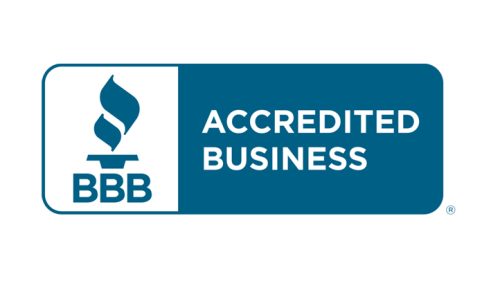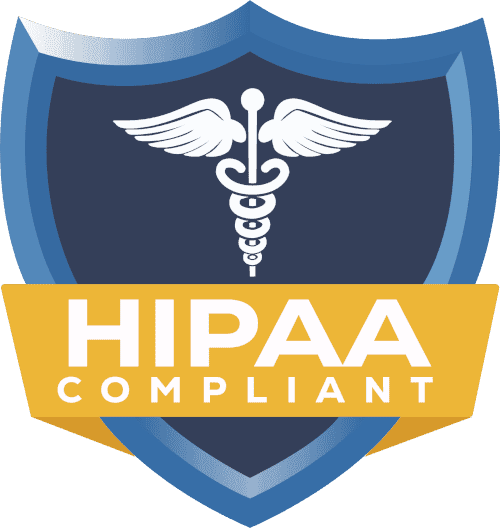How Much Does Medical Credentialing Cost in California

Credentialing influences the timing of your ability to bill payers, whether patients can be referred promptly under insurance, and your practice’s participation in Medi-Cal, Medicare, and private plans. Prices vary widely based on the type of enrollment (Medi-Cal vs. Medicare vs. commercial payers), the number of payers you require, whether you are a solo practitioner or a hospital, and whether you outsource the work. This article breaks down the main cost drivers, price ranges, expected timeframes in California, common hidden fees, and why many practices choose to outsource to a credentialing provider like Credex Healthcare.
Understanding the Credentialing Process in California
Credentialing refers to the procedure that payers and facilities use to assess the qualifications of a provider, including licensing status, malpractice insurance, education, training, and professional history. Credentialing in California overlaps with multiple systems at the state and federal levels:
- Licensure: Managed by the Medical Board of California, this is the primary source for verifying physicians’ licenses. Payers will not recognize providers without valid state licensure or compliance with board requirements.
- Medi-Cal provider enrollment: Handled by DHCS (Department of Health Care Services), Medi-Cal has its own screening and enrollment rules and timelines.
- Medicare enrollment: Conducted via CMS/PECOS, which has its own rules and electronic processes.
- CAQH ProView: This centralized profile is used by many commercial plans to reduce redundant paperwork—you input the data once and share it with multiple payers. Credentialing maintenance includes updating CAQH and performing regular re-attestation.
Since credentialing involves multiple systems and stakeholders, it is a multi-step process: submitting documents, completing payer-specific or state enrollment forms, providing supporting materials (CV, licenses, board certificates, DEA, malpractice declarations, hospital privileges), awaiting review by payers, and finally receiving approval or additional instructions.
Factors That Affect Credentialing Costs in California
Several variables influence the cost of credentialing:
1. Quantity and Type of Payers/Plans
Each payer (Medi-Cal, Medicare, Blue Shield, Anthem, UnitedHealthcare, independent IPAs, etc.) may require different applications or documentation. Fees are often charged per payer or per plan per provider, so costs rise with the number of commercial plans. Large health plans may also include additional contracting fees.
2. Provider Type & Specialty
Board-certified providers and those with hospital privileges often need extra documentation (e.g., fellowships, specialty board verification, procedure logs), which adds administrative time and expense. Telemedicine registrations and supervision agreements also add complexity for behavioral health and telehealth providers.
3. Solo vs. Group vs. Hospital
Hospitals and large groups usually negotiate enterprise agreements. Small practices and solo providers often pay higher per-provider fees when outsourcing. Group packages can reduce per-provider costs but increase the initial total expense.
4. Initial Enrollments vs. Re-Credentialing
Initial credentialing involves more paperwork and follow-ups. Re-credentialing (typically every 24–36 months) is less labor-intensive but still incurs costs. Some vendors offer lower rates for re-credentialing.
5. Speed / Expedited Service
Urgent contracts or start dates often incur rush fees. Fast-tracked Medi-Cal or payer processing may result in additional administrative and payer charges.
6. Software & Platform Costs
Practices that use credentialing software or subscription services (to track CAQH, expirations, and workflows) may face variable monthly fees that must be added to the total cost.
Average Cost of Medical Credentialing for California Providers
Costs vary by vendor and practice size, but typical ranges are:
- Per-plan / per-payer fee: $150–$500 per plan/provider.
- Full credentialing (all major payers + CAQH + Medicare/Medi-Cal): $400–$1,800 per provider, depending on the number of payers, specialty, and inclusion of Medicare/Medi-Cal.
- Re-credentialing: $100–$600 per provider.
- Flat monthly subscription plans: $50–$400 per provider/month, depending on scope (claims, credential monitoring, document management).
- Bare-bones platforms: Internal credentialing software costs between $100 and $400 per month.
For a solo primary care physician enrolling with several commercial payers, Medicare, and Medi-Cal, initial outsourced expenses typically range from $800 to $2,500 per provider. Larger groups may negotiate volume discounts, and hospitals often amortize costs differently.
How Long Does Credentialing Take in California?
Timelines depend on the payer:
- Medi-Cal (DHCS): For non-PAVE or complex applications, screening and enrollment can take 90–180 days; managed care plans typically take around 120 days. Some allow provisional participation until approval.
- Medicare (PECOS): Enrollment may take 30–60 days, but delays occur if additional documentation is required.
- Commercial payers: Average turnaround is 60–150 days, depending on plan complexity, specialty, and provider responsiveness. Some plans are faster, while others may take several months.
Factors affecting speed: completeness of initial applications, accuracy of CAQH profiles, timely re-attestation, hospital privileges verification, board verification, and payer backlog. Expect 3–6 months for full credentialing with major California payers.
Cost Breakdown: Hospitals vs. Private Practices
Hospitals and Mega Health Systems
Hospitals usually include internal credentialing teams; internal costs include staffing, software, and committee time, often accounted for as overhead rather than per-provider costs. Smaller hospitals may delegate parts of the process (e.g., primary source verification) to vendors with per-file fees.
Solo Providers & Private Practices
Per-provider, per-plan fees are more straightforward, typically arranged through outsourcing. Recurring costs include CAQH maintenance, re-credentialing every 24–36 months, and monitoring licenses/DEA registrations.
Common Challenges and Hidden Fees in Credentialing
Hidden Fees to Watch For
- Expedited processing fees for rush applications.
- Per-plan add-on fees for plans requiring extra steps.
- Credentialing committee or contracting setup fees for complex negotiations.
- Software or premium monitoring subscriptions.
Process Pitfalls That Increase Costs
- Incomplete or missing CAQH/application data: Triggers payer requests and rework.
- Expired documents: License, DEA, or malpractice certificate lapses require re-verification.
- Multiple re-checks: Primary source verification failures, especially for international or older training, require repeated checks.
- Delays in board verification: Specialty boards may take weeks to respond.
Benefits of Outsourcing Credentialing in California
- Faster onboarding and fewer errors: Experienced teams understand payer requirements, minimizing delays.
- Administrative relief: Office personnel can focus on patient care and the revenue cycle rather than paperwork.
- Proactive monitoring: Vendors track expirations and send automated reminders for licenses, DEA, and CAQH re-attestations.
- Cost predictability: Discounted subscription packages convert variable internal costs into fixed fees.
- Better payer coverage: Vendors with California payer network expertise can target appropriate plans and complete contracts efficiently.
Outsourcing provides strong ROI for small and mid-sized practices by reducing time-to-revenue delays and mitigating the risk of denied or delayed claims.
Choosing the Right Credentialing Partner for California Practices
When evaluating partners, consider:
- California experience & references: Familiarity with Medi-Cal and regional managed care. Request California-specific case studies or client references.
- Open pricing and SLAs: Clear itemized costs, timelines, and deliverables.
- Technology & reporting: Dashboards, CAQH syncing, expiration notifications, and downloadable reports.
- Dedicated account manager: Single point of contact for payer and practice interactions.
- Compliance and security: HIPAA-compliant document management.
- Add-on services: Some vendors provide payer contracting, RCM integration, and Medicare/PECOS and DHCS enrollment.
How Credex Healthcare Helps in California
Credex Healthcare, with its specialized focus on California provider enrollment and credentialing, helps accelerate turnaround and provide cost clarity. Practice size, payer targets, and credentialing needs can customize our services. Common proposals include payer-specific rates, CAQH implementation, Medicare/Medi-Cal enrollment, and re-credentialing plans.
Credex blends proactive CAQH management, direct payer experience, and live status reporting, ensuring you always know when enrollments are active and billable. For an example engagement or an open fee list, just say the word, and we will provide a plan specific to your provider mix.
How to Budget for Credentialing
List all payers: commercial plans, Medicaid, Medicare, Medi-Cal, hospital privileges, and facility contracts—as separate line items.
Decide whether to outsource or handle in-house; compare staff hours (including hiring/training) and vendor estimates.
Include recurring costs: CAQH maintenance, software subscriptions, and re-credentialing every 2–3 years.
Add a margin of roughly 15–25% for expedited charges, corrections, and revalidation.
Consider volume discounts for multiple providers or locations.
Avoiding Re-Credentialing Delays and Penalties
- Keep CAQH profiles up-to-date and attest on time. Failure to re-attest can result in temporary payer inactivation.
- Automate reminders for licenses, DEA, malpractice, and board certificates.
- Ensure listings in payer directories are accurate so patients can find your practice easily.
FAQs
Q: How much does medical credentialing in California cost on average?
Outsourced services typically range from $400–$1,800 per provider for a full credentialing package, with per-plan fees of $150–$500. Re-credentialing usually costs $100–$600 per provider.
Q: How long does the credentialing process take in California?
Expect 3–6 months for major payers. Medi-Cal may take 90–180 days, Medicare 30–60 days, and commercial plans 60–150 days, depending on complexity and provider responsiveness.
Q: Are there hidden fees in California credentialing?
Yes. Common hidden fees include tiered rates, expedited processing, per-payer add-ons, contracting setup fees, and software or monitoring subscriptions. Always request an itemized fee schedule.
Q: Can credentialing be outsourced in California?
Yes. Many practices outsource to credentialing experts or use credentialing platforms for partial in-house management. Outsourcing can speed up onboarding and reduce errors.



















